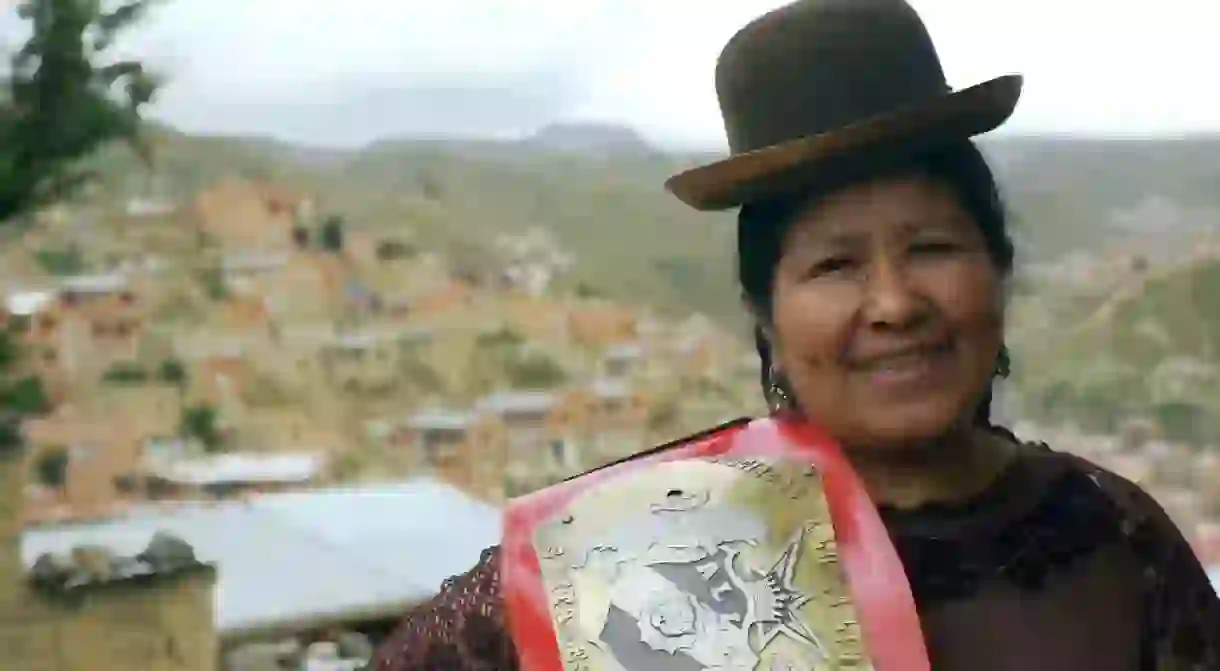7 Inspiring Women From Bolivia You Need to Know About

Bolivia has a long way to go in terms of gender equality, with rampant machismo and domestic violence sadly remaining the norm. Yet despite such adversity, local women are proud and hardworking, at times evolving into iconic local legends who inspire those around them. From wrestlers to rappers and everything in between, here are seven inspirational Bolivianas you should get to know.
Carmen Rosa
In the mid-2000s, indigenous Bolivian women began wrestling in El Alto to find some respite from their violent home lives. An entrepreneurial male promotor saw potential in the spectacle, prompting the women to perform professionally in their colorful attire, while keeping the lion’s share of the profit for himself. A hardy wrestler by the name of Carmen Rosa, aka La Campeon (“the champion”), changed everything by forming her own Cholitas (indigenous) Wrestling Foundation, urging her followers to fight against repression and inspiring other Bolivian women to do the same.

Cholita Mountain Climbers
Not one, but a cohort of hardy women, these fearsome cholitas shocked the world when they scaled the country’s toughest mountain back in 2016. As the story goes, one of the middle-aged women asked her mountain guide husband what it was like to climb Illimani, to which he replied, “Why don’t you find out for yourself?” The woman and her aging friends did exactly that, donning their traditional outfits in a show of indigenous pride.
Soledad Chapeton
Soledad Chapeton became the first female mayor of El Alto in 2017 and has since earned a tremendous amount of respect for tackling the ever-prevalent issue of corruption head-on. Despite being put under enormous pressure by her mostly male counterparts, Solidad has uncovered numerous corruption scandals which have seen various politicians thrown in jail. Furthermore, she champions largely ignored women’s issues such as domestic violence and motherhood.
Santa Mala
The Santa Mala hip-hop crew overcame adversity to leave their life of poverty behind and become a successful brand in both the music and fashion industries. After living below the poverty line in the slums of El Alto, the women – three sisters – emigrated in search of better-paid work in the textile factories of Brazil. After learning the ropes, they created their own hip-hop-style fashion label aimed at urban female youth, and continue to perform live shows that include lyrics about female empowerment.

Adela Zamudio
As the founder of Bolivia’s fervent feminist movement, Adela Zamudio is one of the most celebrated women in the country. A talented poet by trade, she penned a number of fine works over her career that focus on the rejection of societal norms. When not writing, she has gained a considerable following by promoting women’s rights across numerous forums. Such was her influence on the feminist movement that her birthday, October 11, has been designated as Bolivia’s Women’s Day.

Lidia Gueiler Tejada
Who would have thought that Bolivia has had a female president, and as far back as the 70s? But it’s true, for Lidia Gueiler Tejada became the first woman to take on the top job way back in 1979. Granted, she only held an interim role for a period of less than a year before being overthrown by her dictator cousin in 1980. Nevertheless, her impressive early tenure saw her become the second female president in all of the Americas, after Eva Perón.
Beatriz Canedo Patiño
Dubbed the “Queen of Alpaca,” Beatriz Canedo Patiño was the country’s most successful fashion designer and a significant figure on the international stage. After studying in Paris and setting up a successful design house in New York, Patiño returned to her homeland to promote fine Bolivian camelid garments throughout the world. Her work focused on showcasing quality Bolivian wool and encouraging fair-trade practices with impoverished indigenous farmers.














